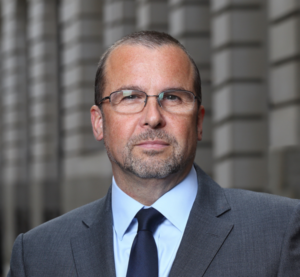Following on from our First Market Insights report released in May, August’s reports continues to share insights from our conversations with board members and senior executives across a range of sectors and industries to gather opinion and potential plans of action in the current yet ever changing business landscape. This document summarises key themes, concerns and forward plans from those conversations.
 Summary
Summary
We are seeing a marked transition away from stage 1 (Reacting) to a purposeful stride ahead into planning and strategy. There are of course some businesses who are experiencing unprecedented growth, but even for those organisations future forward preparedness to further capitalise on opportunities is of high importance.
Businesses across the globe, but particularly in the UK, are about to embark on another phase of significant change as businesses begin to ‘restart’ as lockdown restrictions ease, government backed investment schemes end, affecting cash reserves and potential redundancies, and organisations look to permanently implement new ways of working in physical spaces and remotely.
The mood seems positive, but there is still a lot of uncertainty about the impact of the changes and an underlying cautiousness about the impact of a possible ‘second wave’. Boards and leadership teams need to be confident that future strategies are robust yet flexible to ensure success through the next unchartered waters.
Leadership Challenges
THE PRESSURE ON LEADERS
Whilst many CEOs have demonstrated agile and resilient leadership in recent months, pivoting strategy to address new challenges, defining a clear direction for the organisation and communicating effectively in a virtual business environment, others have been found wanting. One FTSE Chairman described their CEO as “missing in action” during the crisis, unable to develop or articulate a clear response and lacking the EQ to engage in the right way with the workforce.
A similar pattern has been visible across executive teams, with a number of CEOs praising functional leaders who have not only proven highly adaptable in their own sphere but also stepped up beyond their normal remit to contribute to the development of broader post-crisis company strategy. The CEO of a listed construction business spoke of “collective leadership in adversity” where several members of his senior leadership team felt more entitled to share their thoughts and ideas on problems outside their area of expertise because “suddenly, no-one has the answers.”
Leadership team dynamics have also been tested by the crisis. Typically, ExCos with long-serving executives have tended to operate the most effectively, with senior leaders who know and trust each other adapting to ‘virtual teamworking’ more easily. At the other end of the spectrum, new executives hired immediately prior to and during the crisis have faced enormous challenges with onboarding. A newly-appointed FTSE CFO, who went through an entirely virtual interview process, talked about having to invest far more time than normal in identifying and nurturing relationships with internal stakeholders because of the lack of informal contacts and conversations that typically help a new executive navigate the organisation during the onboarding process. This can be taken to the extreme though with one HR executive mentioning that one of their new hires had 55 one-to-ones within their first two weeks.
Read our article, “Onboarding a New Leader – Remotely” here.
Others have talked about “drawing on reserves” during the crisis and the consequent need to replenish as lockdown eases. A FTSE industrial CEO spoke of his concern that what had been a tightly-knit leadership team at the start of the crisis was starting to drift apart. He likened them to “a plane on autopilot, slowly losing altitude” and in need of physically reconnecting with each other to “recharge.” In the same vein a North American C-suite executive described the leadership team around him as “suffering from collective PTSD.”
CONCERN ABOUT A SECOND WAVE
Most business leaders we spoke to, regardless of how their company has been impacted, talked in forward looking terms. A Chairman of a FTSE 250 manufacturing company summed this up well, “It’s time now. Businesses who are slow to move at this stage will get left behind. We still don’t really know what’s coming, but we’ve got stronger scenario planning than before and should be able to adapt faster to any unwelcome surprises and move stronger into next year.” It should also be noted that we are having more conversations around hiring and talent with clients than in previous weeks as Boards and executive teams look to prepare and move forward.
As predicted in our first Market Insights Report, top level changes as a result of underperformance are starting to happen, as shareholders demand action. The CEO of a gaming business observed, “There will be a natural selection of sorts as the business restructures and roles are eliminated and, in many cases, it will be quite straightforward to make those decisions.” And it’s not just the execs. A chairman of a large Financial Services organisation remarked that this crisis is a great example of exposing vulnerabilities across boards.
Whilst there is a general outlook of optimism due to pent up demand for some services and products (particularly in the leisure sector), the possibility of a second wave is a concern for a lot of businesses, particularly amongst CFOs. Their worry is that as lockdown measures in the UK begin to ease, the virus returns and causes further restrictions that will stall any momentum and be detrimental to their business.
SPOTLIGHT ON DIVERSITY
Recent events in the US have triggered a widespread focus on ethnic diversity. Large corporates are having to rapidly respond to increased pressure from employees and customers to have a viewpoint and take demonstrable action. This again highlights the social governance and corporate responsibility of large corporations and Boards need to ensure their responses are measured and appropriate.
Read our “Group Q1 FTSE Board Report” here.
Read our article on “The Elephant in the Boardroom” here.
VIRTUAL EVERYTHING
Businesses have adapted all forms of meetings from catchups, to team huddles and company meetings to a virtual environment. For many executives, this has meant long hours in front of their computer on Zoom or Microsoft Teams, however others are seeing an increase in productivity through a better utilisation of their time between ‘heads up’ and ‘heads down’ work.
Most FTSE Boards have adapted remarkably well to the concept of ‘Virtual Board Meetings’, with many NEDs remarking on how technology has in some ways improved the level of focus and attention on Board topics. However, the process of onboarding and company immersions for new NEDs has been extremely difficult and the lack of physical – and social – interaction between Board members has been missed. The Senior Independent Director of one FTSE Industrial business remarked: “When they happened all the time, some people came to regard Board dinners as a ‘nice to have.’ I think a lot of them have come to realise that they are actually critical to building relationships and developing Board culture.”
Macroenvironment
PLANNING, STRATEGY & GROWTH
In the past few weeks we have seen an increased focus on planning and moving forwards with business across most of our sectors and functions. Particularly within the IT function, as leaders look to respond to heightened awareness of the role of technology in supporting business and also the restart of transformation programmes that were put on hold in the early stages of the pandemic. Initially the focus was practical; making sure systems could support business teams and customers, but now it is shifting to how businesses can use technology and data capabilities to improve performance. According to one FTSE CIO “Before, we were struggling to get support to move away from legacy tech systems, but now that our business has had no choice but look at tech from all areas, there’s a real push from the leadership team to move beyond IT and start reviewing technology and data capabilities.”
Interestingly, for some seemingly hard-hit industries, there is cause for cautious optimism as budget support packages for certain sectors are announced in the UK. For others, there is a feeling that if a business was well run to start with, then there is reason to be confident about the future. The Chairman of several private equity-backed businesses was unconcerned by the crisis. He said he had seen many in his career but acknowledges this might be broader, deeper or eventually longer. He noted that, “If you take a five-year view on any company however, as long as it has a sound business model, clear differentiation and a defendable niche while serving a clear customer need, then, in my opinion, there is no reason why those organisations should not bounce back and ultimately continue moving forwards, growing and creating value.”
DIFFERING RATES OF RECOVERY
In the US, tech firms are now in a stage of real optimism for return to growth despite a tanking US economy and all-time high unemployment. They are taking inspiration from previous global events. Remember the companies that were born around the 2008 recession: WhatsApp, Groupon, Instagram, Pinterest, Slack, Google Ventures and many more.
In the UK, some sectors are bouncing back. The return of sport has had knock-on benefits for the gambling and media industries. With lockdown measures changing from the 4th July, many tourism and hospitality businesses are gearing up for a return, but it is still yet to be determined how factors such as reduced capacity, operational measures such as table service in pubs and cash flow needed to restart their services will play out. In saying that, UK based caravan and camping parks are reporting record bookings and “looking forward to a strong second-half of the year.”
THE ECONOMY AT LARGE
A contact in financial services commented on the bizarre level of stability in the FTSE and financial markets, which seem to be holding up well despite all the negative sentiment. While he suspected there will be quite a few assets for potential sale, he was not sure whether there would be many willing buyers.
In the UK the government is announcing strategies to ‘kick-start’ the economy and employment – mainly across large scale infrastructure and construction projects. However, within the construction sector, the ‘build, build, build’ strategy being touted by the government appears to be nothing new and the funds allocated may be insufficient to make any material impact. As a FTSE 250 chairman within construction pointed out, “It was essentially what Boris promised in the run up to the election so it’s really about waiting to see what they actually do.”
Cashflow, Marketing & Commerical
SCALE BACK OF FURLOUGH AND GOVERNMENT FUNDING
Cashflow, or lack of it, will present significant challenges to some organisations. With the end of government-backed investment schemes, loans and furlough, those companies with poor cash reserves may struggle. We have already seen a number of business go under in the past month. In areas such as hospitality and tourism, a lack of cash will hinder the ability to pay for stock and goods making it even more difficult for businesses to get back on their feet.
SHIFTING BUSINESS MODELS AND NEW PRODUCTS AND SERVICES
There is no shortage of news about how companies have adapted their business models during this pandemic. Products, services and experiences have changed. Some sectors are enthusiastically capitalising on the disruption. Funded tech entrepreneurs & VCs are talking about 2020 as the year to turn the best crazy ideas into reality. “If not now, when anything goes, then when?”
Marketing budgets that were paused and cut are starting to creep back. This seems to be happening faster in markets such as Asia where premium fashion brands are increasing marketing activity. In the UK, some food and drinks companies are expecting to look to hire marketing support talent in the coming months.
PRIVATE EQUITY
We’re hearing some different views from the PE and VC market. The general consensus has been that the pandemic should provide an opportunity for good value acquisitions, but some are reporting these are hard to find. The majority of clients we’ve spoken to have said that they’re very much open for business and have the funds to deploy but realistically see new deals over the next six months to be bolt on acquisitions to current portfolio businesses. One Partner from a mid-cap fund said, “We have a great understanding of valuation when acquiring a market competitor and can have better judgement post crisis.” Another Partner at a low midcap commented, “Valuations in a post-Covid world haven’t been fully adjusted yet and we may not see this for some time. Whilst we’re keen to do business, we’re not prepared to overpay.”
It’s a buyers’ market and many of the businesses now looking for additional funding or a sale do not present good value in the eyes of many PE partners. This sentiment is backed up by another Managing Partner from a mid-cap fund that we’ve worked with a number of times who said, “We won’t be looking to pick up any businesses in the early recovery phase of the pandemic, as depending on sector, well managed businesses will survive the early phase, poorly managed ones without future purpose won’t.” Many we’re speaking to expect to see a glut of opportunity in Q4 this Year and Q1 2021, largely featuring distressed assets as the impacts of furlough and delayed tax payments play out.
Across different areas of the market we are seeing a similar reflection of the wider sectors in terms of business performance. A chairman of three PE backed businesses (one in technology, one in education, and one in events) told us that the technology business is flying, the business in education is doing well with its online work, but struggling with courses delivered physically, whereas the events business has completely fallen off a cliff.
People, Operations & Infrastructure
OFFICE SPACE AND WORKING MODELS
It will come as no surprise that a lot of our clients are looking to reduce overheads by implementing blended or remote working as an ongoing model. Banks, consultancies and those in professional services seem to be moving ahead with these changes quickly. Several executives we spoke to are reporting that they are reducing desks by a half to two-thirds and many are also looking to save costs by moving offices out of London. Several Talent Acquisition leaders reported a ‘regional hub’ type model being touted that would allow employees to still visit offices and collaborate with colleagues without needing to travel to a central city location. That said, there are a number of businesses with a real estate legacy from long leases, owned buildings or campuses in the case of businesses like BP or Google. It’s not yet clear what these businesses long term plans will be for their office space.
In tech, “remote first” is the language being used in Silicon Valley and The Bay Area. Many of these companies are starting to announce that remote working will be the norm, with office space used flexibly only when people need it. We see this as having a substantial impact on leadership talent in the US where East to West coast (and vice versa) talent migration has traditionally been difficult. Talent Acquisition leaders agree, pointing to location as being a previously limiting factor in the candidate pool they are able to draw from for many roles and their intern/graduate schemes. Many are now looking to understand which roles can be entirely remote so that they can tap into much needed skills from locations much further away from their current offices.
HR & RESTRUCTURING
Return from Furlough and Redundancies
With the reduction in available government funds and the ending of the furlough scheme, it is expected that the UK will see widespread redundancies. One CEO commented that, “While the furlough scheme was welcome, not one employee within the business will be saved by it. The furlough scheme has simply delayed the inevitable. We won’t be able to even afford the “top-up” so are making redundancies now.”
HR leaders are, unsurprisingly, reporting that they are very busy. Returning people to work, managing furlough and possible redundancies, blended working, leadership agility, employee wellbeing, changes to organisation structure and a spotlight on diversity and inclusion is putting pressure on HR functions.
With a lot of companies pausing hiring, HR teams have been focusing on talent mapping to ensure they’re ahead when budgets and roles are agreed, and business demand starts to match pace with their enthusiasm to recruit. The CEO of a gaming business talked about how the crisis has brought the best and worst out of people and shown who the strong and poor performers and leaders are. “There will be a natural selection of sorts as businesses restructure and roles are eliminated. In many cases it will be quite straightforward to make those decisions.”
We have also seen an increase in demand for executive level interim hires in organisations who want access to senior talent immediately and are taking advantage of unexpected growth areas without committing to a permanent hire. We expect a further upturn in this area, especially across tech, commercial, marketing and PE backed firms. As businesses begin to head into the next stage and need to drive growth, many are recognising they don’t have the existing capabilities within their organisation due to changes stemming from the pandemic. Many incumbent organisations are looking to increase and upskill their digital and tech leadership capabilities.
MENTAL HEALTH
At the time of the last Market Insights Report there was a real focus on employee mental health and well-being from business leaders and organisations. This awareness has not changed and if anything, has become ‘more real’ for people at all levels within businesses. Two CEOs commented on how much more challenging and draining it was to run ‘closed’ businesses and lots of people we are talking to have mentioned they are loving not having to commute, but that working in this way is more intense and they are feeling drained and finding it hard to switch off. There is an expectation of burnout towards the end of the year and also a real concern around the psychological safety aspect of returning to the workplace and employees being able to speak up about concerns/individual issues about the return – some will be worried about the travel in, some will be worried about distancing, some may not want to return because they have family at home who are shielding.
There are some positives arising from this however and as one HR leader points out, “I think the greatest shift I am seeing in my leaders is their empathy which previously had been lacking at times in key decision making. Our CEOs are now experiencing the benefits and challenges of managing work life and family life in equal measure. They are experiencing the pressure of mental well-being, both personally and in close proximity to loved ones that they are isolating with. These issues are no longer an agenda item to be driven by HR but are real to the senior leaders from all business units around the table and do not discriminate. This will fundamentally change how we support the workforce to deliver their best every day. It is no longer anecdotal, they have experienced it first-hand, as we all have, and have adjusted and flexed our thinking and habits accordingly.”
What’s Next?
As Boards and Executive teams lead their organisations through the next stages, we will be interested to see how things evolve by the time of the next Market Insights Report.
We’d welcome the opportunity to discuss this report and hear further insights from business leaders. Please reach out to one of our partners directly here or contact one of our managing partners using their details below.
Simon Gough
Managing Partner,
Interim Management

E: sgough@savannah-group.com
Chris Donkin
Managing Partner,
Executive Search

E: cdonkin@savannah-group.com
Download the report: “Savannah Market Insights: Leadership for the ‘Next Normal’ – Issue 2”




